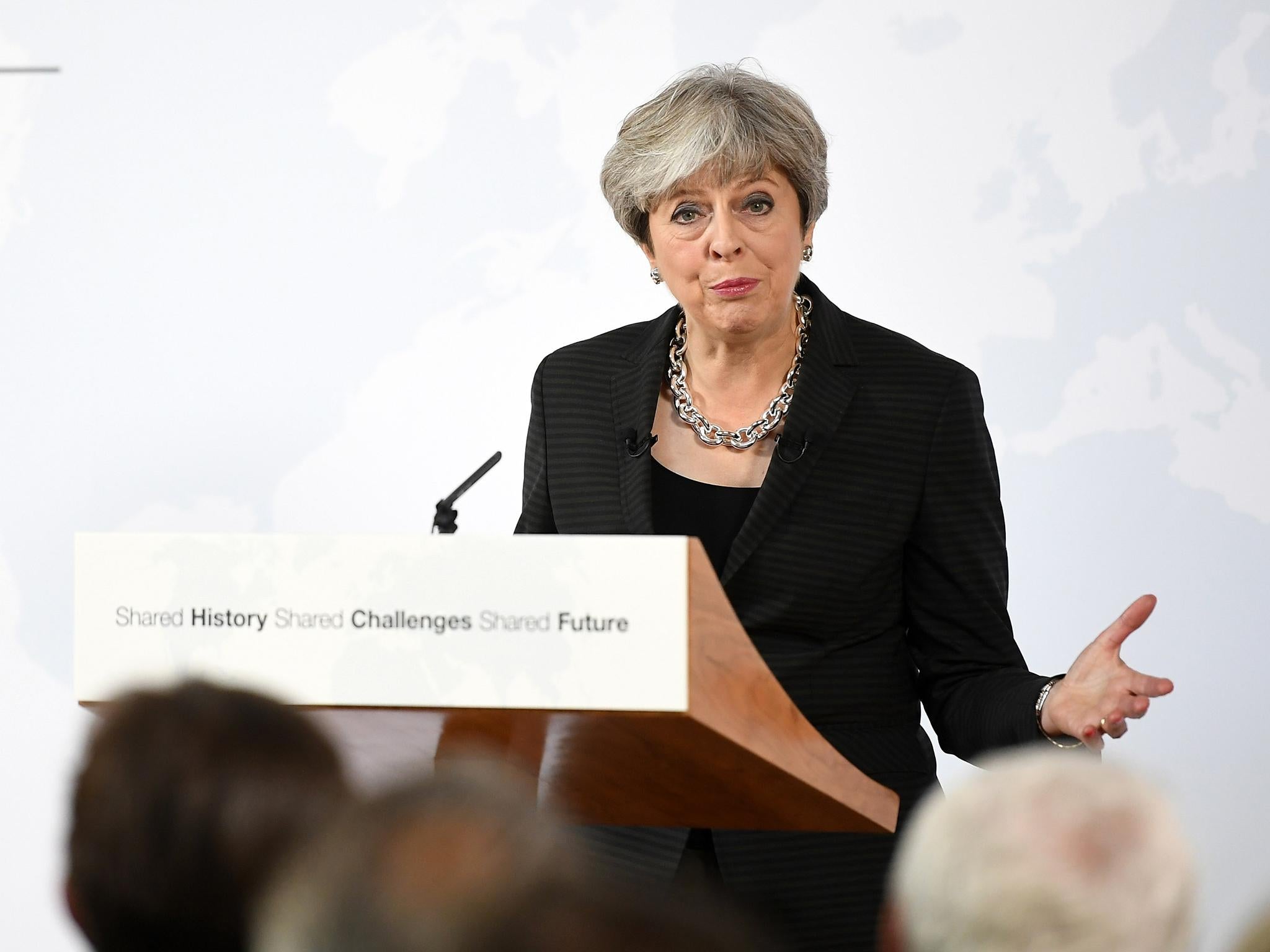As a hard Brexiteer I was impressed by Theresa May’s Florence speech
We often talk about British values and if anything represents those values, it is surely a sense of fairness, playing by the rules and fulfilling obligations – in this case our financial and moral ones to Europe

Few interventions by a UK prime minister have been as eagerly anticipated as the one that Theresa May has just delivered in Florence.
As far as European policy is concerned, it could be deemed the most significant speech by a serving British PM on continental European soil since Margaret Thatcher’s famous speech at the College of Europe in Bruges in 1988.
That was the moment when the Iron Lady criticised the “new dominance from Brussels” and reignited the torch of Euroscepticism within the Conservative Party, which grew ever brighter over the following three decades and ultimately contributed to the country voting to leave the European Union last year.
One of the reasons the media were so keenly anticipating today’s speech was because of how little May has said about Brexit during the past few months. But this should hardly have come as a surprise: she has often restated that she would not be giving a “running commentary” on the Brexit negotiations and the position she set out in the Lancaster House speech in January has remained the Government’s position ever since.
Clearly there was much excitement over the 4,000-word intervention by Boris Johnson in the Telegraph last weekend and fevered speculation about what it all meant. Having been the leading public face of the Vote Leave campaign, the Foreign Secretary clearly feels extremely invested in this process and was evidently frustrated at not having been afforded the opportunity to make a speech of his own on Brexit.
However, a close reading of his treatise demonstrated that there was virtually nothing on which his position was at variance with formal government policy.
But with the formal Brexit talks now under way, there has understandably been a bit of a vacuum and anti-Brexit forces have been quick to claim that the process was somehow faltering on the basis of early agreements not being made on a range of matters. Again, it is unsurprising that during the early months of a two-year negotiation process, the two sides have been sizing each other up and – in the EU’s case at least – indulging in a bit of grandstanding.
As a result, it was important for the Prime Minister to restate the Government’s collective position and set out once again the bright and optimistic vision she has for post-Brexit relations between the UK and the European Union – which is exactly what she did.
Probably the most significant section of the speech today was what the Prime Minister said in relation to the transition she envisages in the period directly after 30 March 2019 – two years after the triggering of Article 50.
Again, the fact that there will be a transition is hardly news: in the Lancaster House speech, the Prime Minister said that there would be “a phased process of implementation” at that juncture, emphasising there would not be “some form of unlimited transitional status”. What we now know is that the Prime Minister sees the period as “likely to be around two years”.
And the biggest related story to emerge is that May is prepared for the UK to contribute to the EU budget during both 2019 and 2020. This is how she put it:
“I do not want our partners to fear that they will need to pay more or receive less over the remainder of the current budget plan as a result of our decision to leave. The UK will honour commitments we have made during the period of our membership.”
The EU budget is set across seven-year cycles and the current cycle concludes at the end of 2020; plans were made back in 2013 for this period based on the UK contributing its share throughout, so those are the financial commitments she is promising to honour – not a Brexit “bill”, as some insist on putting it, but rather fulfilling outstanding obligations.
Some will doubtless cry foul at this. But, even as an avowed Brexiteer, I see this as reasonable. We often talk about British values – and if anything represents those values, it is surely a sense of fairness, playing by the rules and fulfilling obligations – in this case financial and moral.
Clearly these matters will be on the agenda for the talks that recommence between David Davis and Michel Barnier and their teams in Brussels next week. But I hope that the mature, responsible and constructive tone adopted by the Prime Minister today will ensure those talks proceed in an ever more productive way.
Jonathan Isaby is editor of BrexitCentral

Join our commenting forum
Join thought-provoking conversations, follow other Independent readers and see their replies